Are you considering temporary guardianship for a child? It's a crucial decision that ensures their safety and well-being during unforeseen circumstances. Crafting a clear and concise letter for temporary guardianship authorization is essential for a smooth transition. Dive into our article to discover helpful templates and tips for creating a letter that meets all legal requirements and provides peace of mind.
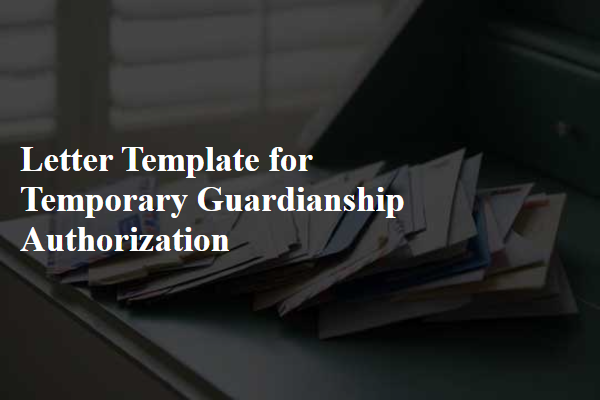
Clear identification of both the child and temporary guardian.
Temporary guardianship authorization requires precise details for clarity. The child, named Emily Johnson, born on March 15, 2015, residing at 123 Maple Street, Springfield, will be temporarily entrusted to the guardian, Mark Smith, born on July 22, 1980, who resides at 456 Oak Avenue, Springfield. This document serves to outline the responsibilities and authorities granted to Mark Smith during the temporary guardianship period from June 1, 2023, to August 31, 2023. The authorization covers areas such as medical decisions, educational needs, and daily care, ensuring Emily's welfare and safety during the specified timeframe.
Specific duration and dates of guardianship.
Temporary guardianship authorization allows designated individuals to care for a minor. This legal arrangement typically specifies a duration, such as three months, beginning on June 1, 2023, and ending on September 1, 2023. During this period, guardians are responsible for daily needs, including education, health care, and general welfare. Proper documentation must be prepared, outlining responsibilities, decision-making authority, and emergency procedures, ensuring clarity and protection for both the minor and the guardians. This arrangement can be essential during specific events like travel, illness, or family emergencies.
Parental consent and signatures required.
Temporary guardianship authorization involves legal documentation ensuring the care and responsibility of a child under specific circumstances. This document requires parental consent, detailing the duration of the guardianship, and must include signatures from all biological parents or legal custodians. The authorization specifies the guardian's name, address, and the child's information, such as full name and date of birth. It may also outline the powers granted to the guardian, including medical decisions and educational choices, and any limitations to those powers. Local laws may mandate notarization to validate consent, emphasizing the importance of compliance with jurisdictional requirements to safeguard the child's welfare during the guardianship period.
Legal rights and responsibilities granted to the guardian.
Temporary guardianship authorization allows designated individuals to assume legal rights and responsibilities concerning a minor or incapacitated person. This arrangement is often formalized through a court order, permitting guardians to make vital decisions regarding medical treatment, education, and welfare for the designated individual. Legal custodianship typically includes the authority to sign documents, enroll in schools, and access medical records for the ward. The timeframe, specifically defined, dictates how long these responsibilities stay in effect, often until a court review determines a change in the minor's living situation or the return of the original guardianship. Ensuring comprehensive documentation, including personal identification and residence proof, is essential for a valid guardianship process.
Emergency contact information and medical authorization.
Temporary guardianship authorization is essential for ensuring that a trusted individual can make decisions for a minor during an emergency. Designated temporary guardianship should include the full name of the minor, their date of birth, and the specific authority granted to the guardian, such as medical care and emergency contact responsibilities. The authorization should list the guardian's full name, address, phone number, and relationship to the minor. Emergency contact information is crucial, including a primary contact who will be available at all times, preferably a close family member or friend. Additionally, specify medical authorization permissions, enabling the guardian to seek medical treatment for the minor, including the ability to consent to surgical procedures if necessary. This document must be signed and dated by a legal parent or guardian, highlighting its importance in safeguarding the child's well-being during unforeseen situations, with appropriate witnesses if required by state law.

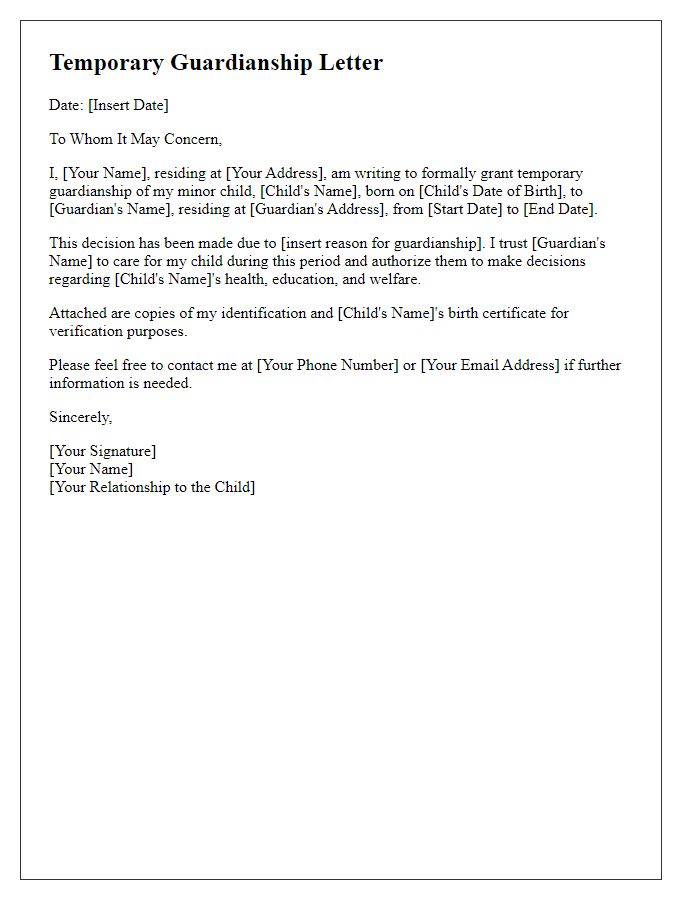
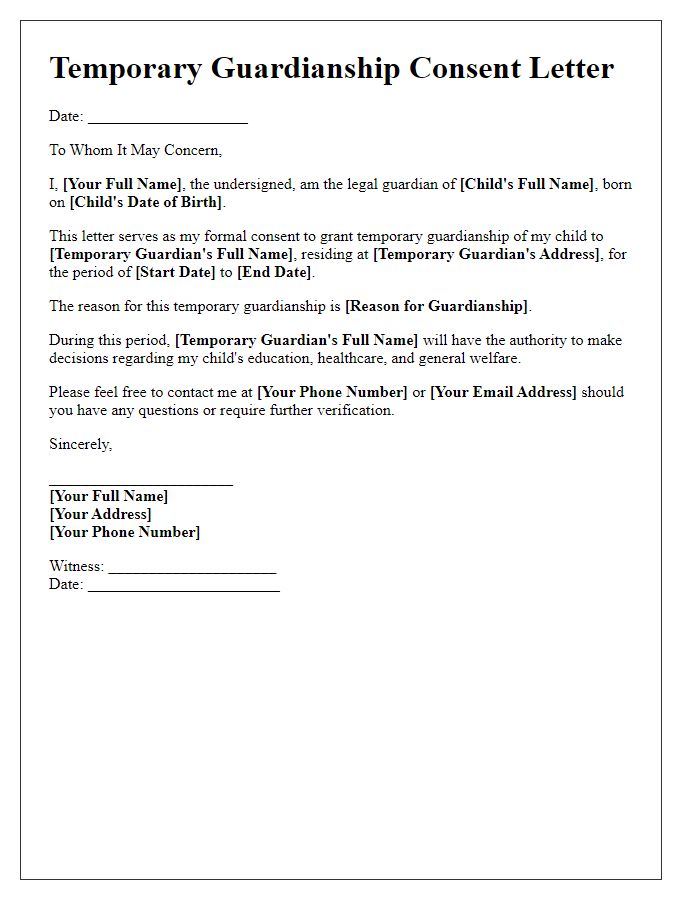
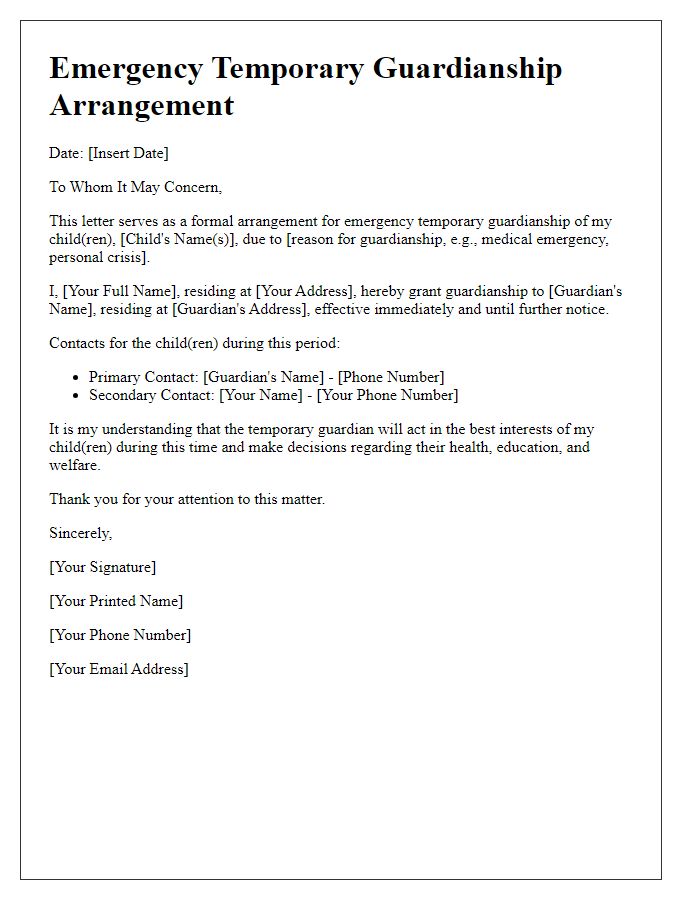
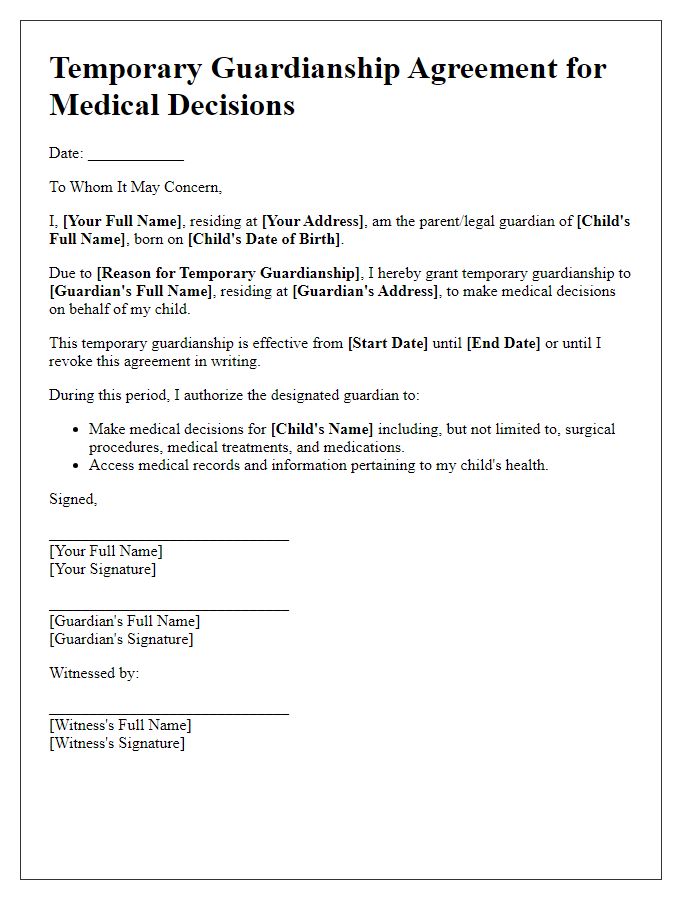
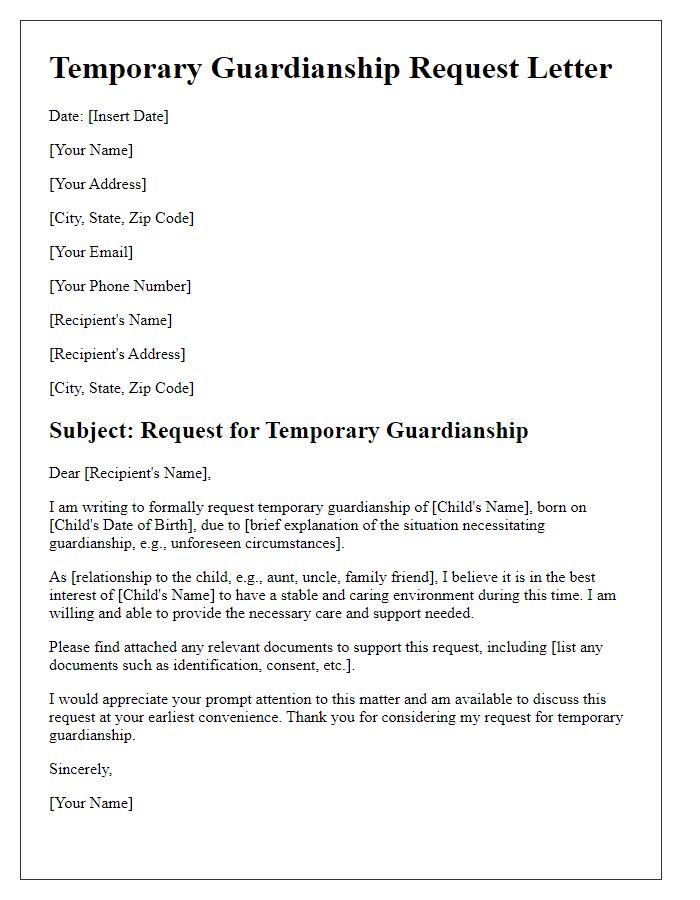
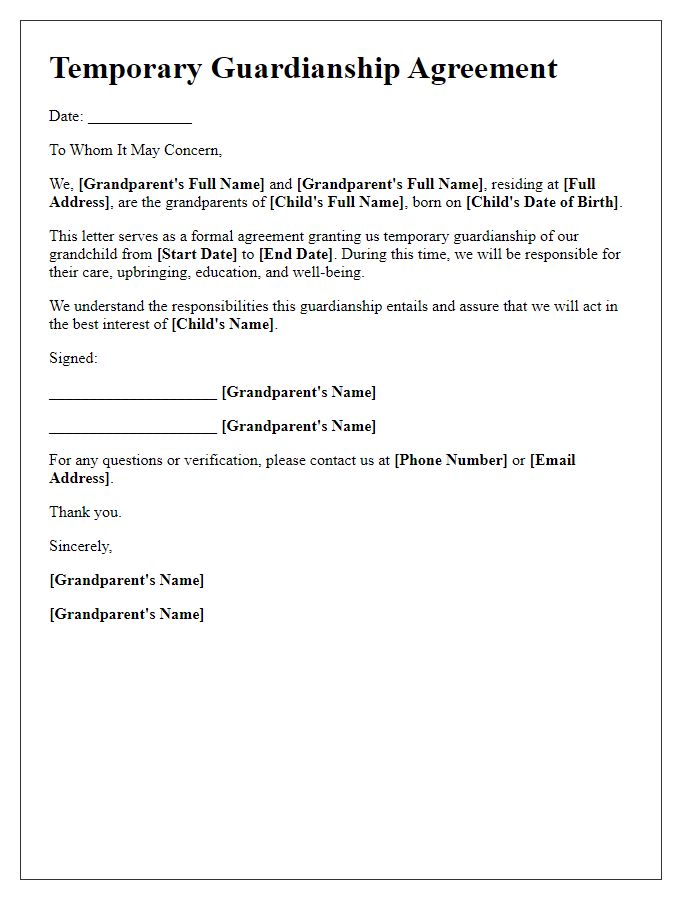
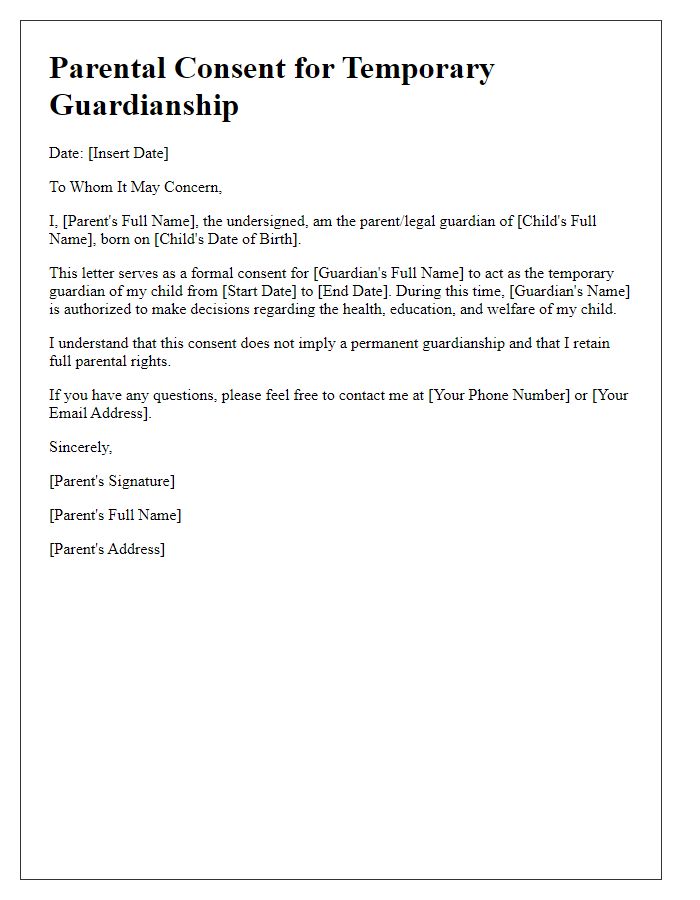
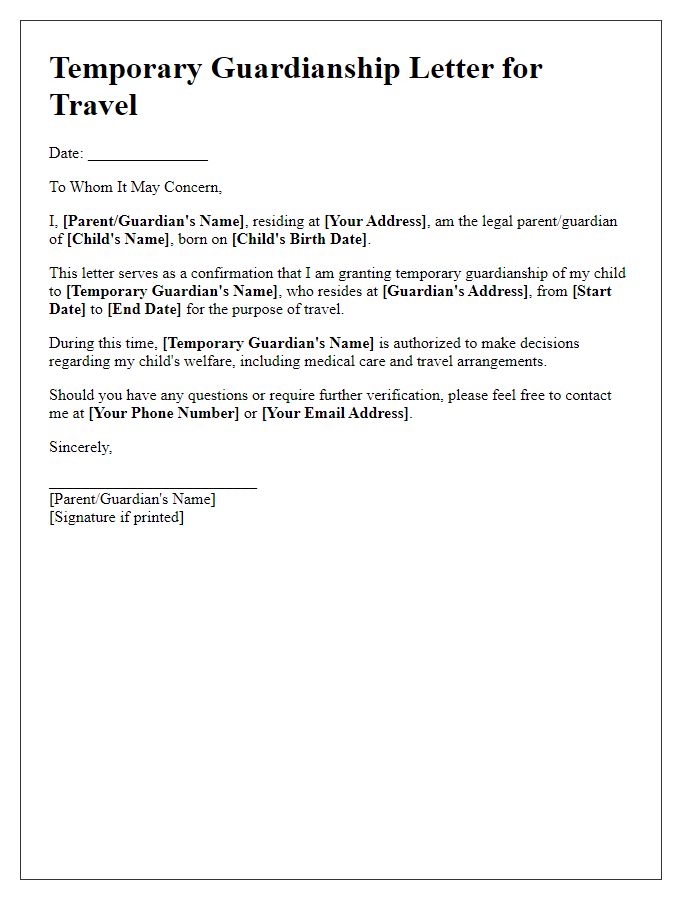
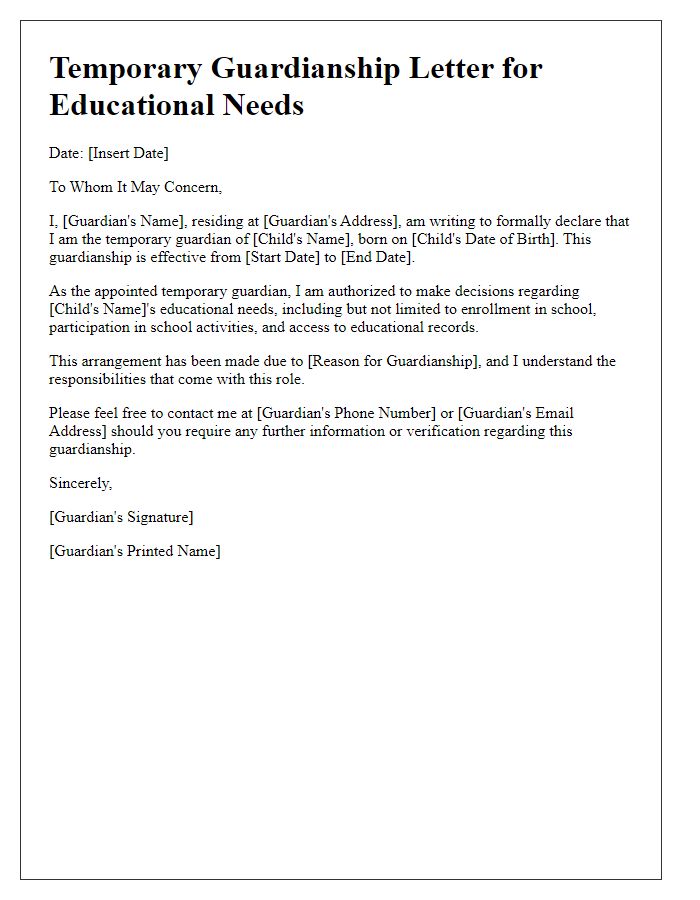
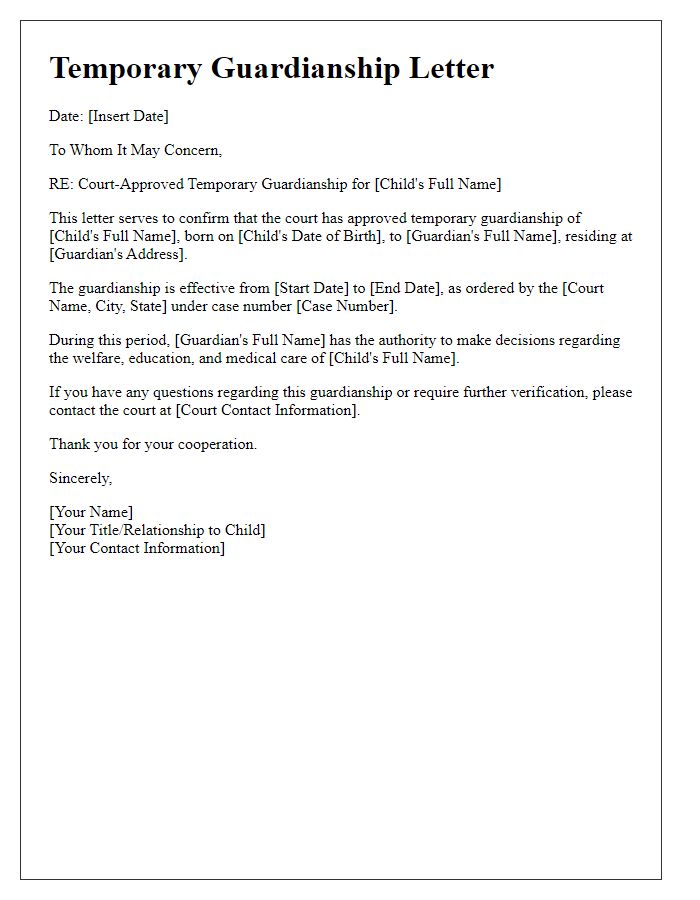

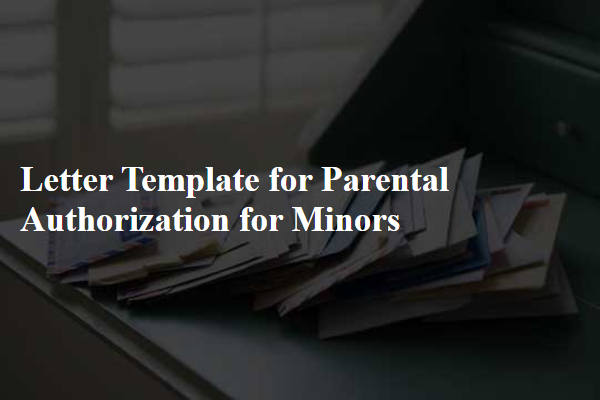
Comments